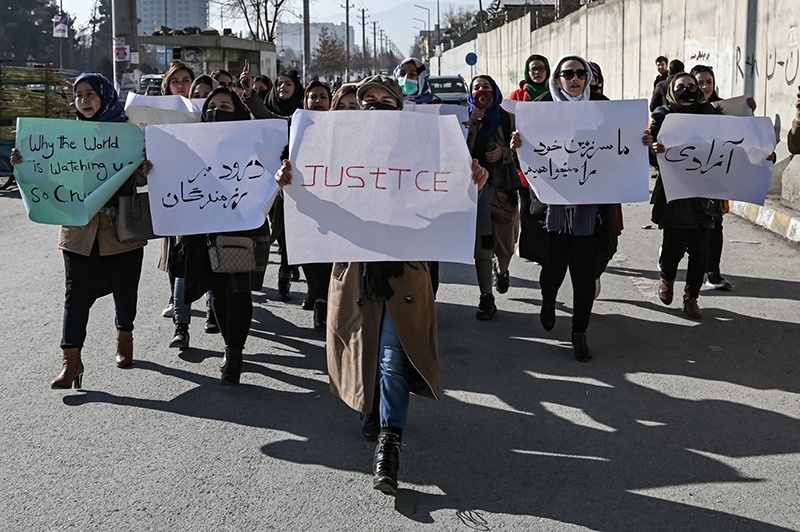KABUL: A crowd of women marched through the Afghan capital yesterday, accusing Taleban authorities of covertly killing soldiers who served the former US-backed regime. Around 30 women gathered near a mosque in the centre of Kabul and marched a few hundred metres chanting "justice, justice" before they were stopped by Taleban forces, an AFP correspondent saw.
The Taleban also tried to prevent journalists from covering the march, organised against the "mysterious murders of young people, particularly the country's former soldiers", according to social media invitations. Taleban fighters briefly detained a group of reporters and confiscated equipment from some photographers, deleting images from their cameras before returning them.
Since the hardliners returned to power in August they have effectively banned unsanctioned protests and frequently intervene to block demonstrations against their austere brand of Islam. The protest comes weeks after separate reports by the United Nations, Amnesty International and Human Rights Watch said there were credible allegations of more than 100 extrajudicial killings by the Taleban since their takeover.
"I want to tell the world, tell the Taleban to stop killing. We want freedom, we want justice, we want human rights," said protester Nayera Koahistani. In a statement read aloud by protester Laila Basam, the demonstrators called on the Taleban "to stop its criminal machine".
The statement said former soldiers and government employees of the old regime are "under direct threat", violating a general amnesty announced by the Taleban in August. The protesters also aired objections to the ratcheting restrictions women are facing under Taleban rule.
The government issued new guidelines at the weekend banning women from travelling long distances unless escorted by a close male relative. "Women's rights are human rights. We must defend our rights," said Koahistani.
Video footage posted online yesterday showed another women's protest held elsewhere in the capital that also called for women to be allowed education and work opportunities. - AFP










